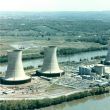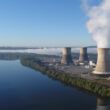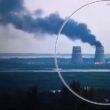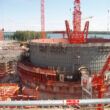Why nuclear power is unique. Uniquely dangerous.
By Sharon Squassoni, September 30, 2011
Charles Forsberg suggests that nuclear energy holds the kernel of energy independence, that it can be a force for peace, and that it can remove “energy demands as a cause of war,” citing the West’s oil interests in the Middle East as a reason for military interventions.
If true, these would be reasons enough to heavily subsidize nuclear energy. Consider, however, that energy independence may not only be unattainable, but undesirable. The reason is cost. It is cheap energy that can help fuel economic growth. Most countries will choose affordable energy over independent energy. If they’re wise, they will seek mutually assured dependence with their suppliers and recipients — not independence. Countries like Japan and France are held up as models for those seeking to reduce dependence on oil through nuclear power, but neither has been able to do so: Their transportation still relies on oil. Arjun Makhijani points out that transportation electrification could reduce oil dependence, but he suggests a smart approach would allow electric cars to take advantage of renewable sources’ intermittences — implicitly suggesting that big demands on electricity don’t require resources like nuclear energy.
At the heart of Forsberg’s suggestion that nuclear energy could lead to energy independence is his assertion of the massive energy output of uranium. For now, uranium is a resource like coal, oil, or gas — geographically limited and its production is tied to cost and quality of recoverable resources. Depending on foreign supplies is a way of life in the nuclear business, from uranium to components to services. The United States, with the largest number of reactors in the world (104 of the 433 globally), for example, gets more than 90 percent of its uranium overseas without undue security risks. Some foreign dependence could diminish if uranium becomes economically recoverable from seawater. For true independence, however, the world would need to move to breeder reactors, which produce more plutonium than they burn. The proliferation implications of such a move are enormous.
Whether nuclear power can be a force for peace is debatable. Forsberg hints that if countries weaned from oil, Middle East interventions would be less necessary. However, more nuclear power plants may be built in the Middle East than in the United States in the next 20 years — the United Arab Emirates intends to build 10, and Saudi Arabia reportedly will build 16. Will those plants be a force for peace or targets for nuclear terrorism in a region noted for terrorist activity? Will burgeoning nuclear capabilities be viewed as hedging strategies for nuclear weapons?
The conventional wisdom is that nuclear power reactors aren’t proliferation risks — that we can monitor the fresh and spent fuel, that the plutonium produced isn’t good for weapons, and that proliferating states have chosen other paths to produce weapons. The real proliferation risks come from uranium enrichment and spent-fuel reprocessing. Forsberg suggests we can overcome these risks with fuel-leasing approaches.
Here are some other considerations:
- Nuclear power is a feature of the developed world — only 30 countries of 190 have nuclear power, and they are overwhelmingly in the Organisation for Economic Co-operation and Development. China launched its first nuclear power plant 20 years ago. Yet the 60 countries now thinking about nuclear power are developing countries, with wide variations in governance structures and capabilities. If Fukushima was troubled by regulatory difficulties, imagine what the future could hold.
- You can’t have light-water reactors without enrichment, and there are no current restrictions on any country deciding to go forward with indigenous enrichment or reprocessing facilities. It is costly and difficult to develop the technology, but as Iran has shown, black-market networks help. Moreover, the new Nuclear Suppliers Group criteria seem to make it more feasible — not less — for countries to receive enrichment and reprocessing technology.
- There has never been enthusiasm for taking other countries’ nuclear waste. France forbids it. The United States has no permanent repository. Russia has an arrangement with Iran because of proliferation concerns. The fact that no country has ever managed to open a commercial spent nuclear fuel repository makes fuel-leasing arrangements a bit like a desert mirage. Of course, spent nuclear fuel could just be shuffled around reprocessing plants, but the build-up in separated plutonium at those plants is another security issue in and of itself.
If Fukushima has taught us anything, it is that we shouldn’t be complacent about risks we can’t imagine. We know something about the risks of renewable energy sources, but nuclear weapons don’t figure there.
Topics: Nuclear Energy
Share: [addthis tool="addthis_inline_share_toolbox"]














